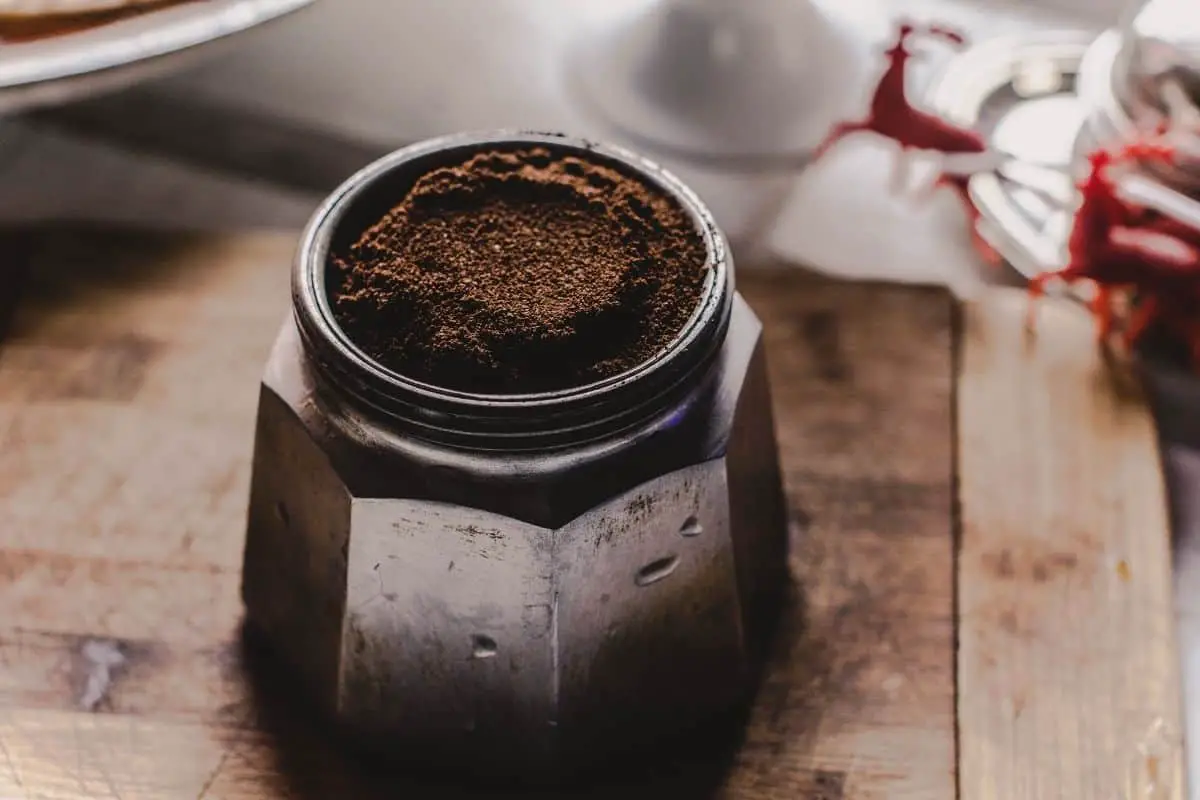

Articles
How To Store Coffee Grounds After Opening
Modified: February 26, 2024
Learn the best techniques for storing coffee grounds after opening in this informative article. Keep your coffee fresh and flavorful for longer periods.
(Many of the links in this article redirect to a specific reviewed product. Your purchase of these products through affiliate links helps to generate commission for Storables.com, at no extra cost. Learn more)
Introduction
When it comes to enjoying a delicious cup of coffee, the quality of the coffee grounds is crucial. Whether you prefer a strong espresso or a smooth pour-over, the freshness and flavor of the coffee depend on how well you store the grounds. Properly storing coffee grounds after opening is essential to maintain their taste and aroma for an extended period.
In this article, we will explore why it is important to store coffee grounds correctly and the factors that can affect their quality and shelf life. We will also provide you with the best practices for storing coffee grounds, including options such as using an airtight container, freezing the grounds, or repurposing them for other uses.
By following these storage tips, you can ensure that your coffee grounds stay fresh and delicious, allowing you to savor the perfect cup of coffee every time.
Key Takeaways:
- Properly storing coffee grounds is crucial to maintain their freshness and flavor, protecting them from air, moisture, light, and heat. Utilize airtight containers and avoid freezing for daily use.
- Repurpose coffee grounds for skincare, deodorizing, gardening, and cooking to minimize waste and explore their versatile applications. Maximize freshness and flavor by following proper storage techniques.
Read more: How To Store Ground Beef After Opening
Why Properly Storing Coffee Grounds is Important
Properly storing coffee grounds is important for several reasons:
- Prolongs Freshness: Coffee grounds are highly susceptible to losing their flavor and aroma when exposed to air, moisture, light, and heat. By storing them correctly, you can preserve their freshness for a longer period, ensuring a more enjoyable cup of coffee.
- Maintains Flavor: Freshly ground coffee beans contain volatile compounds that contribute to the rich flavors and aromas we love. If the grounds are not stored properly, these compounds can deteriorate quickly, resulting in a stale and less flavorful brew.
- Prevents Oxidation: When coffee grounds come into contact with oxygen, they undergo oxidation, which can lead to the formation of rancid flavors and off-putting aromas. Proper storage techniques can minimize the exposure of the grounds to oxygen, preserving their quality.
- Protects from Moisture: Moisture is one of the main enemies of coffee grounds. It can cause them to clump together, leading to uneven extraction and brewing. Additionally, moisture can introduce mold and bacteria, further compromising the quality of the coffee.
By understanding the importance of proper storage, you can take the necessary steps to ensure that your coffee grounds stay fresh and flavorsome, maximizing your coffee-drinking experience.
Factors Affecting Coffee Grounds Quality and Shelf Life
Several factors can impact the quality and shelf life of coffee grounds:
- Exposure to Air: Coffee grounds are highly perishable and can quickly lose their flavors when exposed to air. Oxygen can cause oxidation, leading to a stale taste. It is essential to store coffee grounds in airtight containers to minimize air exposure.
- Moisture: Moisture is the enemy of coffee grounds as it can lead to the growth of mold and bacteria. It can also cause the grounds to clump together, resulting in uneven extraction during brewing. It is crucial to keep coffee grounds in a dry environment.
- Light: Exposure to light, especially sunlight, can accelerate the degradation process of coffee grounds. Ultraviolet (UV) rays can break down the aromatic compounds and affect the overall flavor. Storing coffee grounds in opaque containers or cabinets can help protect them from light exposure.
- Heat: Heat can accelerate the oxidation process of coffee grounds, leading to a loss of flavor and aroma. It is best to store coffee grounds in a cool environment, away from direct heat sources such as stovetops or ovens.
- Grind Size: The size of coffee grounds can also affect their quality and shelf life. Finely ground coffee has a larger surface area exposed to air and can lose flavor quickly. Coarser grinds generally have a longer shelf life. Adjusting the grind size based on your brewing method can help preserve the flavor.
By understanding these factors, you can take appropriate measures to store your coffee grounds properly, ensuring they maintain their quality and freshness for as long as possible.
Best Practices for Storing Coffee Grounds
To ensure the freshness and quality of your coffee grounds, follow these best practices for storage:
- Use an Airtight Container: Transfer your coffee grounds to an airtight container, such as a glass jar or airtight plastic container. This will help prevent exposure to air and minimize oxidation.
- Store in a Cool, Dark Place: Find a cool and dark spot in your kitchen to store the coffee grounds. Avoid placing them near heat sources or in direct sunlight, as this can compromise their flavor.
- Avoid Freezing and Thawing: While freezing can help extend the shelf life of coffee, it is not recommended for daily use. Frequent freezing and thawing can introduce moisture and affect the flavor. It is best to freeze only the amount you won’t be using for an extended period.
- Buy Whole Beans and Grind as Needed: If possible, purchase whole coffee beans instead of pre-ground coffee. Grinding the beans just before brewing helps maintain the freshness and flavor of the coffee. Store the whole beans in an airtight container and grind them as you need.
- Don’t Store in the Fridge: Avoid storing coffee grounds in the refrigerator. The fluctuating temperatures and moisture can impact the flavor and cause the grounds to absorb odors from other foods.
- Use Fresh, Filtered Water: When brewing your coffee, always use fresh, filtered water. The quality of the water can significantly impact the taste of your coffee.
- Regularly Clean Storage Containers: Clean your storage containers regularly to remove any residue or oils that may accumulate. This will help prevent any cross-contamination and maintain the freshness of your coffee grounds.
By following these best practices, you can ensure that your coffee grounds remain fresh and flavorful, providing you with the perfect cup of coffee every time you brew.
Store coffee grounds in an airtight container at room temperature, away from light, heat, and moisture. Avoid storing in the fridge or freezer, as they can introduce moisture and odors.
Option 1: Storing Coffee Grounds in an Airtight Container
One of the best ways to store coffee grounds after opening is by using an airtight container. This method helps preserve the freshness and flavor of the grounds. Here are the steps to follow:
- Choose the Right Container: Select a container that is airtight and has a strong seal. Glass jars with rubber gaskets or containers with tight-fitting lids work well for this purpose.
- Transfer the Coffee Grounds: Once you’ve opened the coffee packaging, transfer the grounds into the airtight container. Make sure the container is clean and dry before doing so.
- Fill the Container Almost to the Top: Fill the container with coffee grounds, leaving only a small space at the top. This reduces the amount of air in the container, minimizing oxidation.
- Seal the Container Properly: Ensure that the container is sealed tightly to prevent any air from entering. Check the lid or closure to make sure it is secure.
- Store in a Cool, Dark Place: Place the airtight container in a cool and dark spot in your kitchen. Avoid areas that are exposed to heat, sunlight, or excessive moisture.
- Avoid Opening the Container Frequently: Every time you open the container, you introduce air and compromise the freshness of the coffee grounds. Try to scoop out the required amount without fully opening the container.
- Keep the Original Roast Date and Expiration Date: To keep track of the freshness, write down the original roast date and the expiration date of the coffee on the container. This will help you know when it’s time to replenish your supply.
- Refill Small Amounts as Needed: If you find that you are running low on coffee grounds, refill the airtight container with small amounts to maintain freshness. This way, you can ensure that you always have a supply of fresh coffee on hand.
Storing your coffee grounds in an airtight container can significantly extend their shelf life and preserve their flavor. By following these steps, you can enjoy a delicious cup of coffee every time you brew.
Read more: How To Store Ground Coffee Once Opened
Option 2: Freezing Coffee Grounds
If you have a large supply of coffee grounds and want to extend their shelf life, freezing them can be a viable option. Freezing coffee grounds can help preserve their freshness and flavors for an extended period. Here’s how to go about it:
- Divide the Coffee Grounds: Divide the coffee grounds into smaller portions that you typically use for brewing. This will make it more convenient to thaw only the amount needed for each brew.
- Wrap and Store: Place each portion of coffee grounds in an airtight freezer bag or airtight container. Remove as much air as possible from the bag or container before sealing it tightly.
- Date and Label: Write the date of freezing on each bag or container so that you can keep track of their freshness. It’s also helpful to label them with the type of coffee and any specific details you may need.
- Place in the Freezer: Put the bags or containers of coffee grounds in the freezer. It is best to store them in the back of the freezer, away from the door, to minimize exposure to temperature fluctuations.
- Thawing and Using: When you’re ready to use the coffee grounds, take out the desired portion from the freezer and let it thaw at room temperature. Once thawed, use the coffee grounds as you normally would for your preferred brewing method.
- Do Not Refreeze: It’s important to note that once you’ve thawed the coffee grounds, it is not recommended to refreeze them. Thawed coffee grounds may lose some freshness and flavor if refrozen and thawed repeatedly.
Freezing coffee grounds can help preserve their quality when you have a surplus or want to stock up. However, it’s important to keep in mind that frequent freezing and thawing can affect the overall flavor. It’s best to freeze only the portion you won’t be using for an extended period, ensuring that you maintain the freshest coffee possible.
Option 3: Using Coffee Grounds for Other Purposes
Instead of storing coffee grounds for an extended period, another option is to repurpose them for various uses. Coffee grounds can serve a variety of purposes beyond brewing a delicious cup of coffee. Here are some creative ways to utilize coffee grounds:
- Natural Exfoliant: Coffee grounds can be used as an exfoliant for your skin. Mix them with a small amount of coconut oil or olive oil to create a gentle scrub. Massage it onto your skin in circular motions, then rinse thoroughly. The coffee grounds help to remove dead skin cells and leave your skin feeling smooth and rejuvenated.
- Deodorizer: Coffee grounds have natural deodorizing properties. Place a small bowl of dry coffee grounds in your refrigerator, pantry, or any area with unpleasant odors. The coffee grounds will help absorb and neutralize the odors, keeping your space smelling fresh.
- Gardening Aid: Coffee grounds can be incorporated into your gardening routine. They can be added to compost piles to enrich the soil with organic matter and provide essential nutrients for your plants. Coffee grounds can also be used as a natural mulch around acid-loving plants like azaleas, rhododendrons, and blueberries.
- Insect Repellant: Coffee grounds can act as a natural deterrent for certain pests. Sprinkle coffee grounds around areas where you want to keep ants, slugs, or snails away. These pests dislike the acidity and strong scent of coffee, keeping them at bay without the need for harmful chemicals.
- Cleaning Agent: Coffee grounds can be an effective abrasive cleaner. Use them to scrub away stubborn stains on pots, pans, or even your grill. The coarse texture of the coffee grounds helps to remove grease and grime without scratching surfaces.
- Flavor Enhancer for Cooking: Coffee grounds can add depth and richness to certain recipes. They can be added to spice rubs for meats, used as an ingredient in chocolate desserts, or incorporated into savory dishes like chili or stews. Be sure to use coffee grounds that are not pre-flavored or have added additives.
By finding alternative uses for coffee grounds, you can minimize waste and enjoy their benefits beyond your morning cup of joe. Get creative and explore the many ways coffee grounds can enhance various aspects of your daily routine.
Conclusion
Properly storing coffee grounds after opening is essential to maintain their freshness, flavor, and overall quality. By understanding the importance of storage and following the best practices, you can enjoy a consistently excellent cup of coffee every time you brew.
Factors such as exposure to air, moisture, light, and heat can significantly impact the longevity of coffee grounds. It is crucial to store them in airtight containers, away from direct heat and sunlight, and in a cool, dark place. This helps to prevent oxidation, maintain flavor, and protect against the growth of mold and bacteria.
In addition to traditional storage methods, you can also consider freezing coffee grounds if you have a surplus and want to extend their shelf life. However, it is recommended to freeze only the portion you won’t be using for an extended period to maintain optimal freshness.
Furthermore, coffee grounds have various alternative uses, including as a natural exfoliant, deodorizer, gardening aid, insect repellant, cleaning agent, and even as a flavor enhancer in cooking. By repurposing coffee grounds, you can minimize waste and explore their versatile applications.
Ultimately, whether you choose to store coffee grounds in an airtight container, freeze them, or repurpose them, the goal is to maximize their freshness and flavor. By implementing these strategies, you can prolong the shelf life of your coffee grounds and continue enjoying the perfect cup of coffee each day.
Remember, coffee is a delicate and nuanced beverage, and proper storage plays a crucial role in preserving its unique characteristics. So take the necessary steps to store your coffee grounds correctly, and savor the rich flavors and aromas in every sip of your favorite brew.
Frequently Asked Questions about How To Store Coffee Grounds After Opening
Was this page helpful?
At Storables.com, we guarantee accurate and reliable information. Our content, validated by Expert Board Contributors, is crafted following stringent Editorial Policies. We're committed to providing you with well-researched, expert-backed insights for all your informational needs.
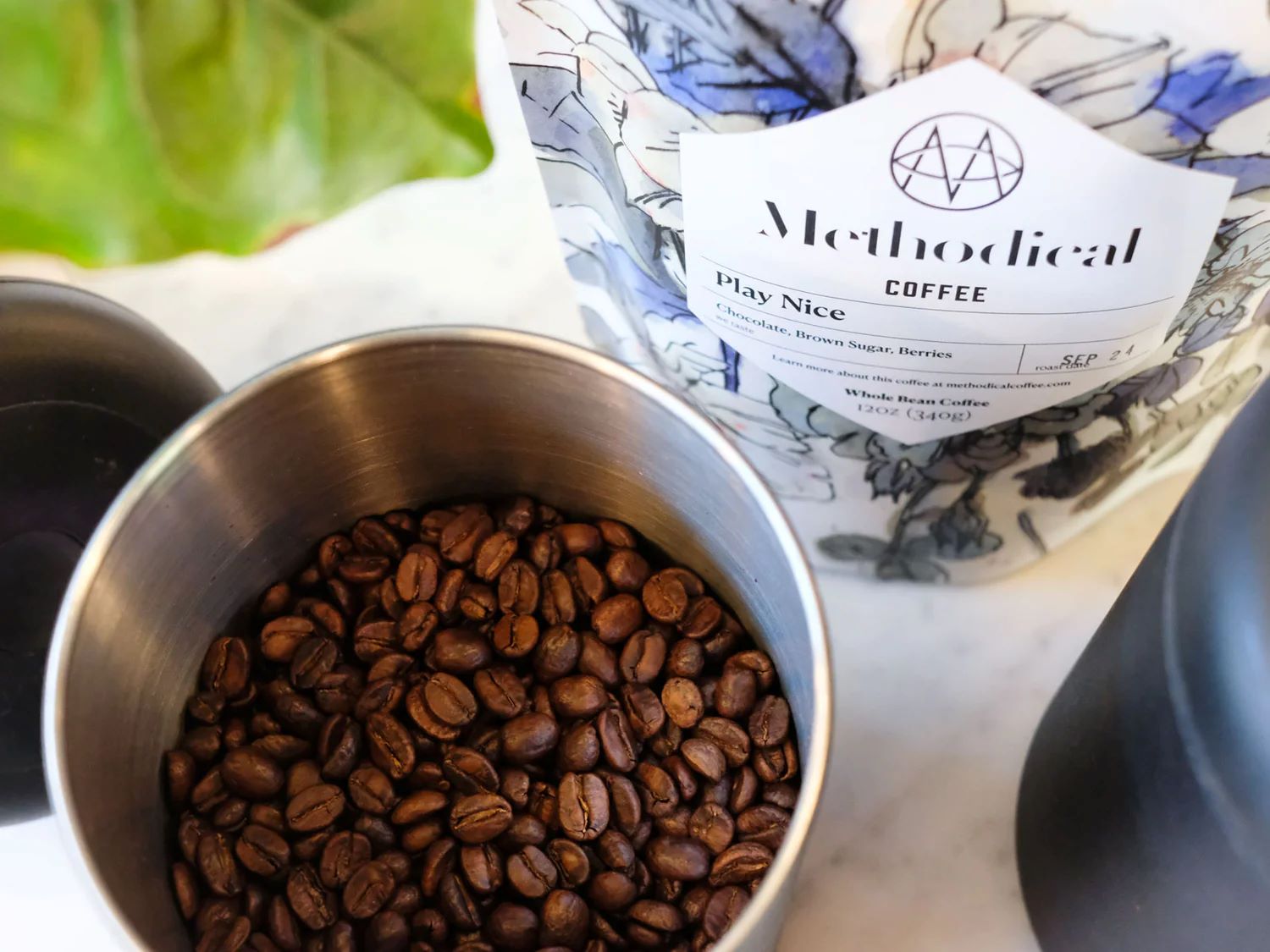
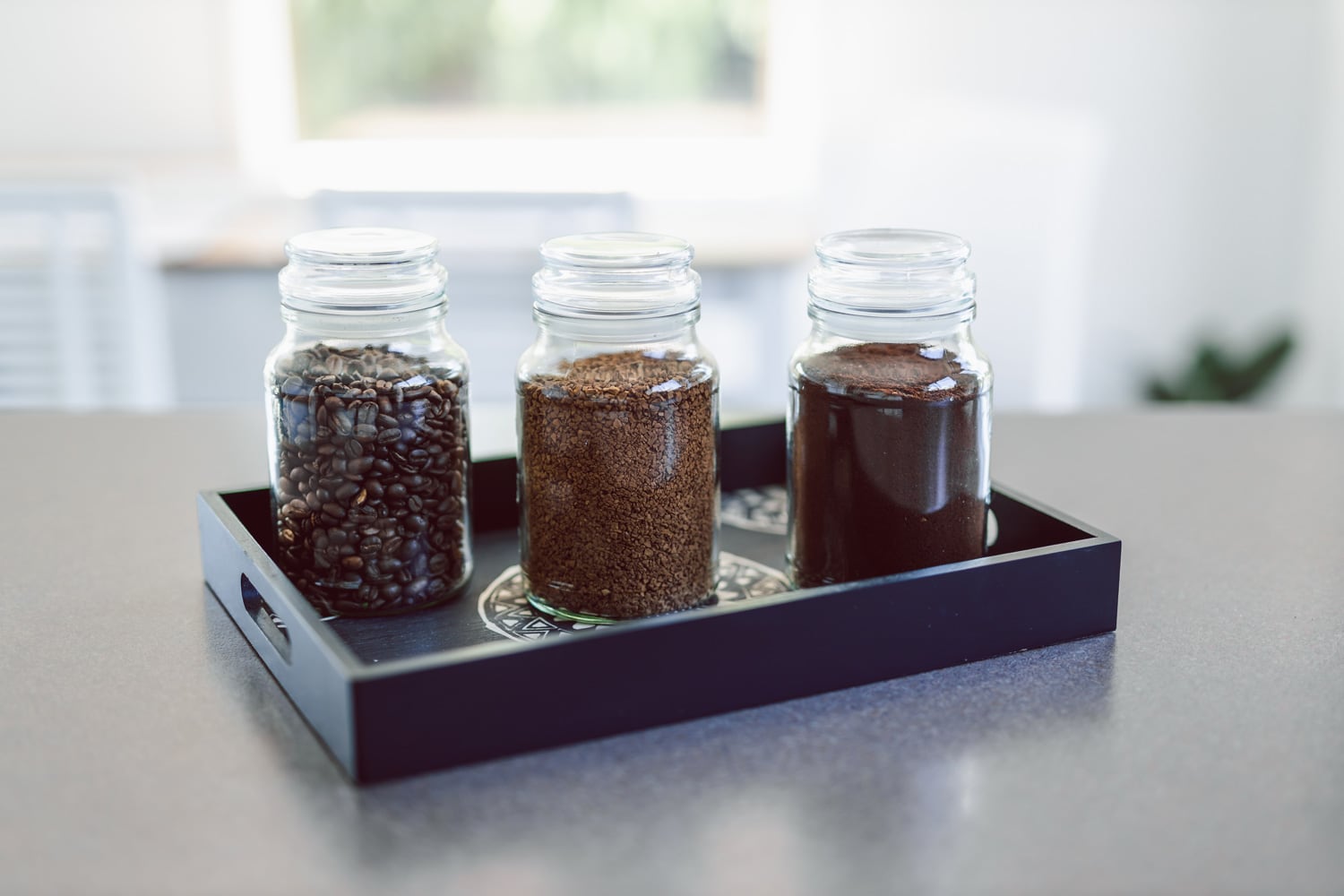
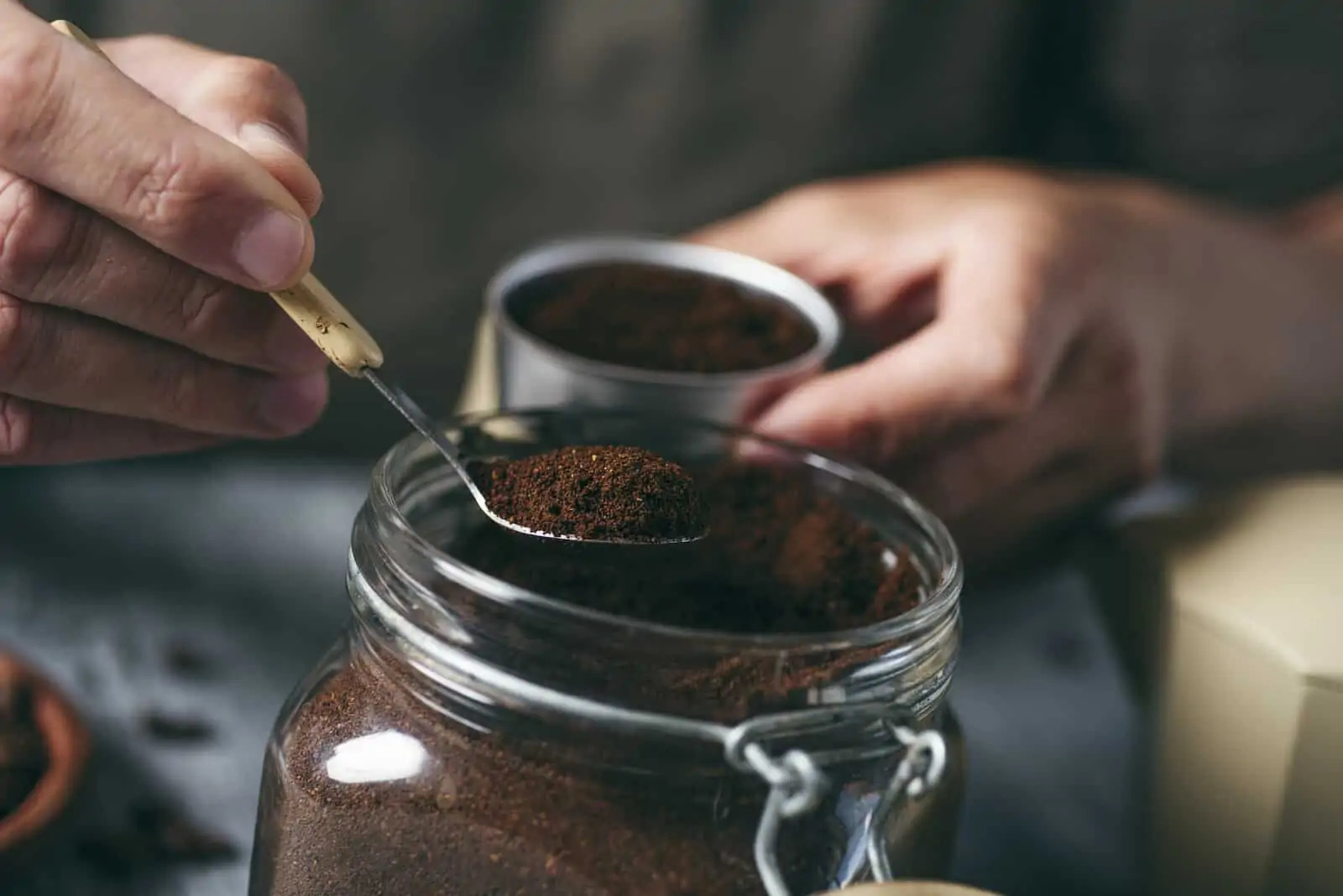
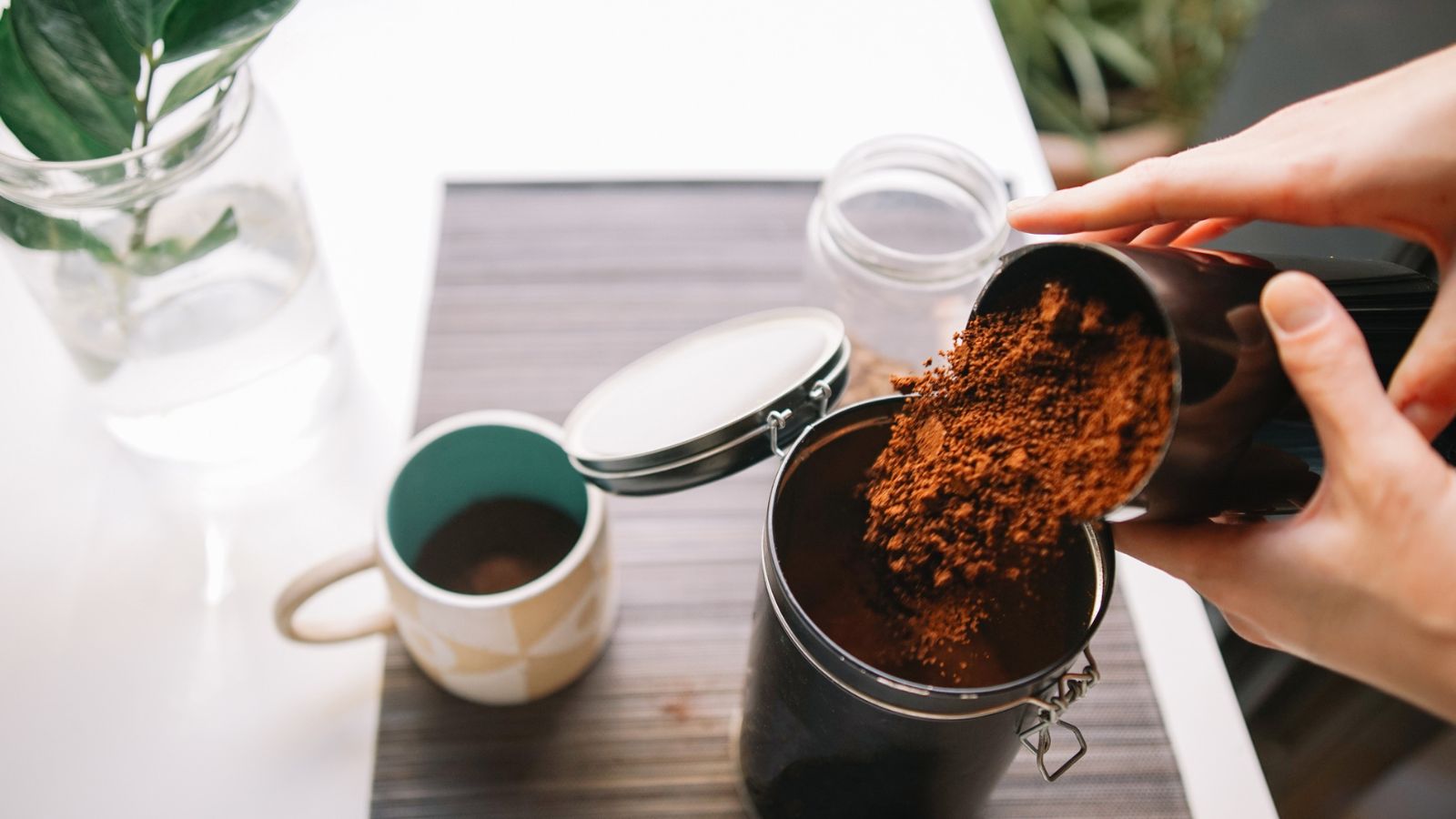
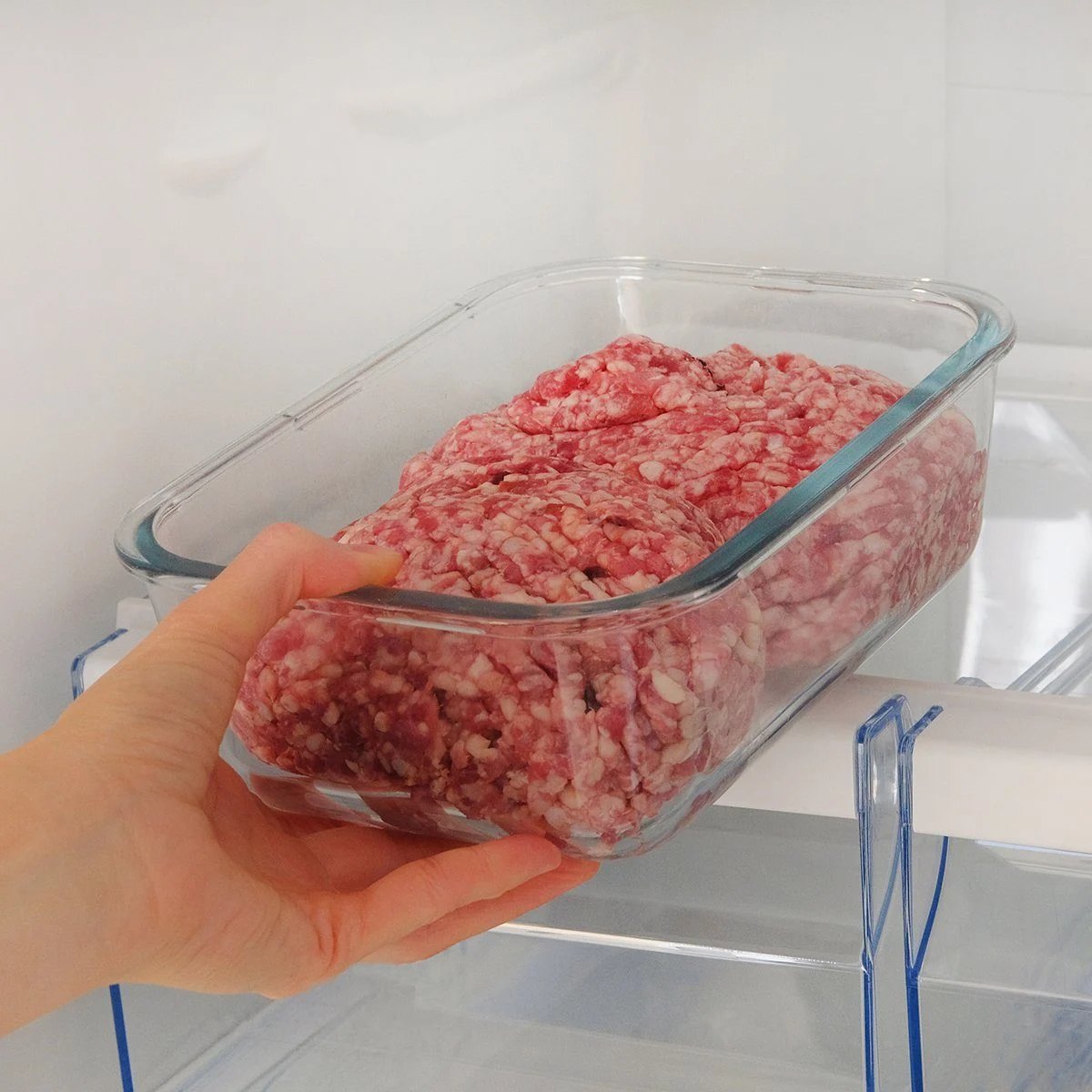
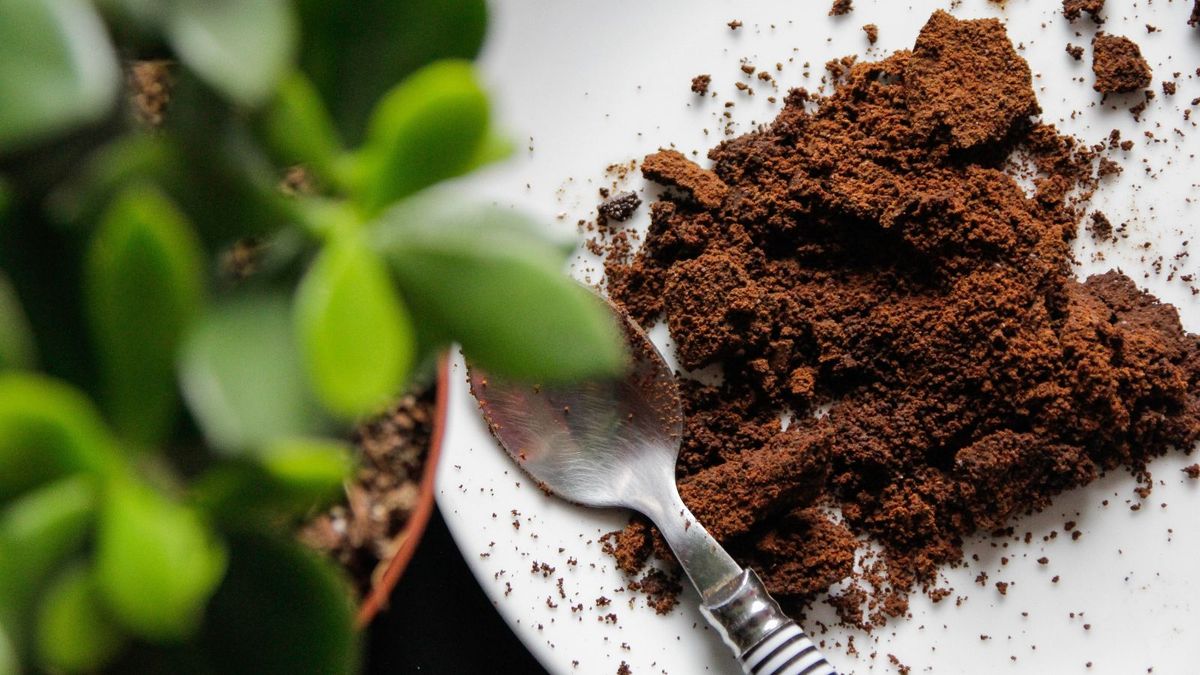
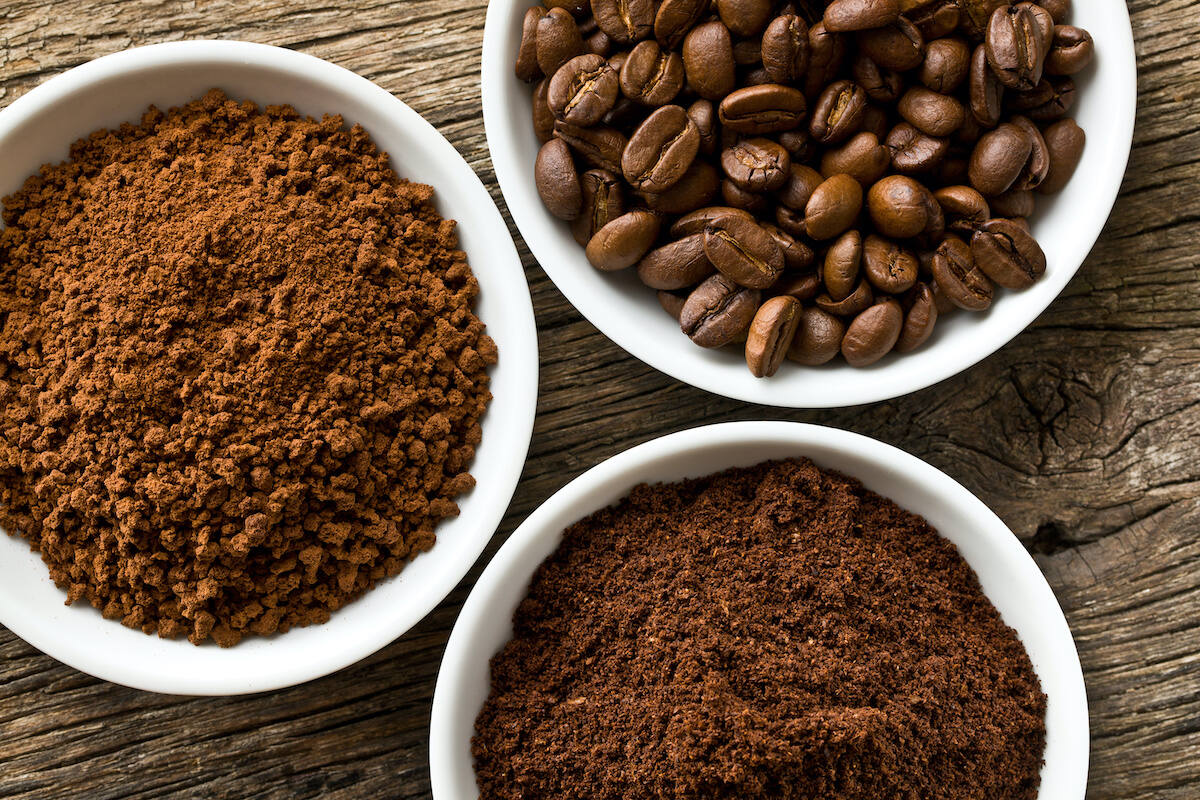
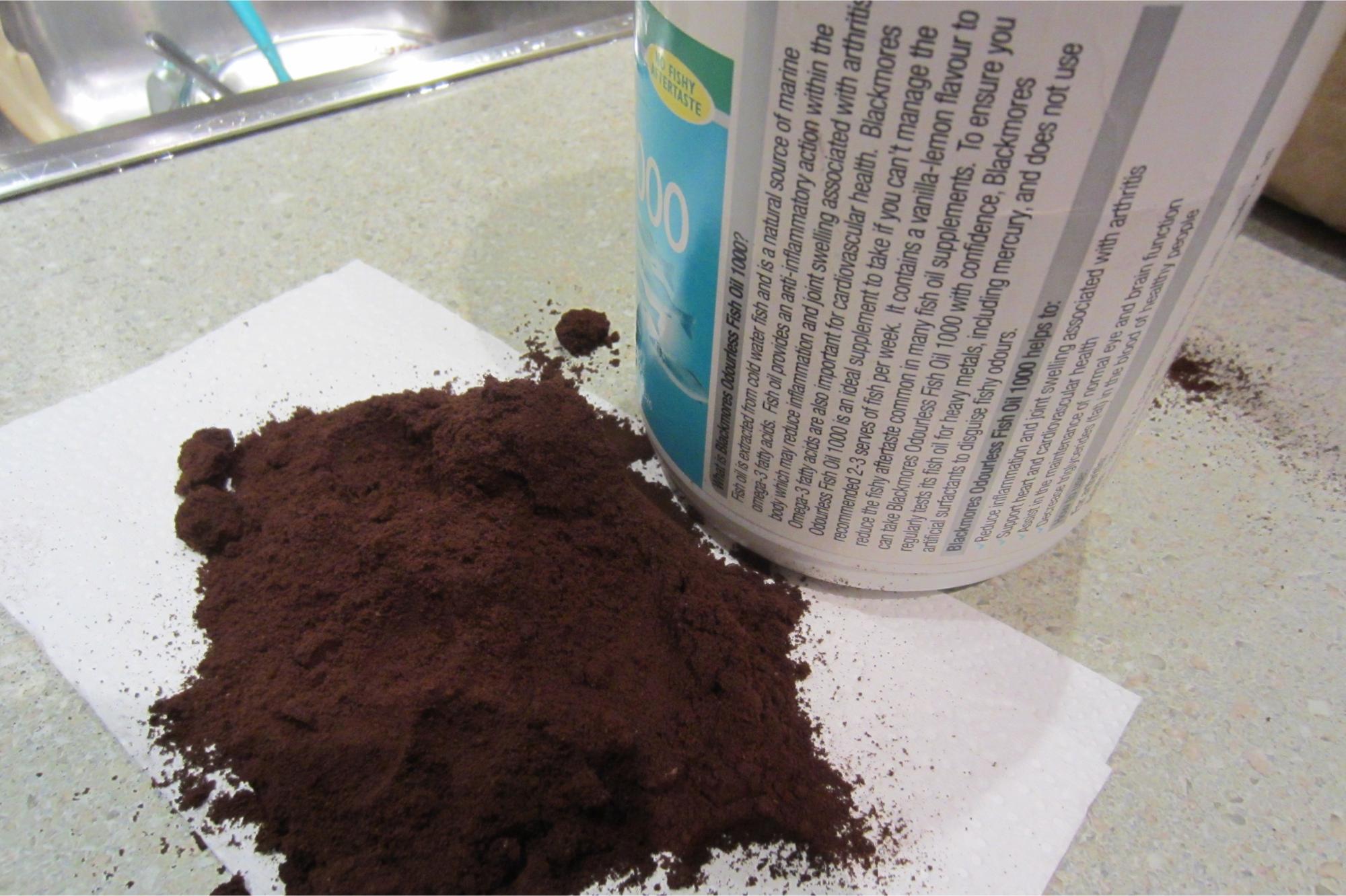


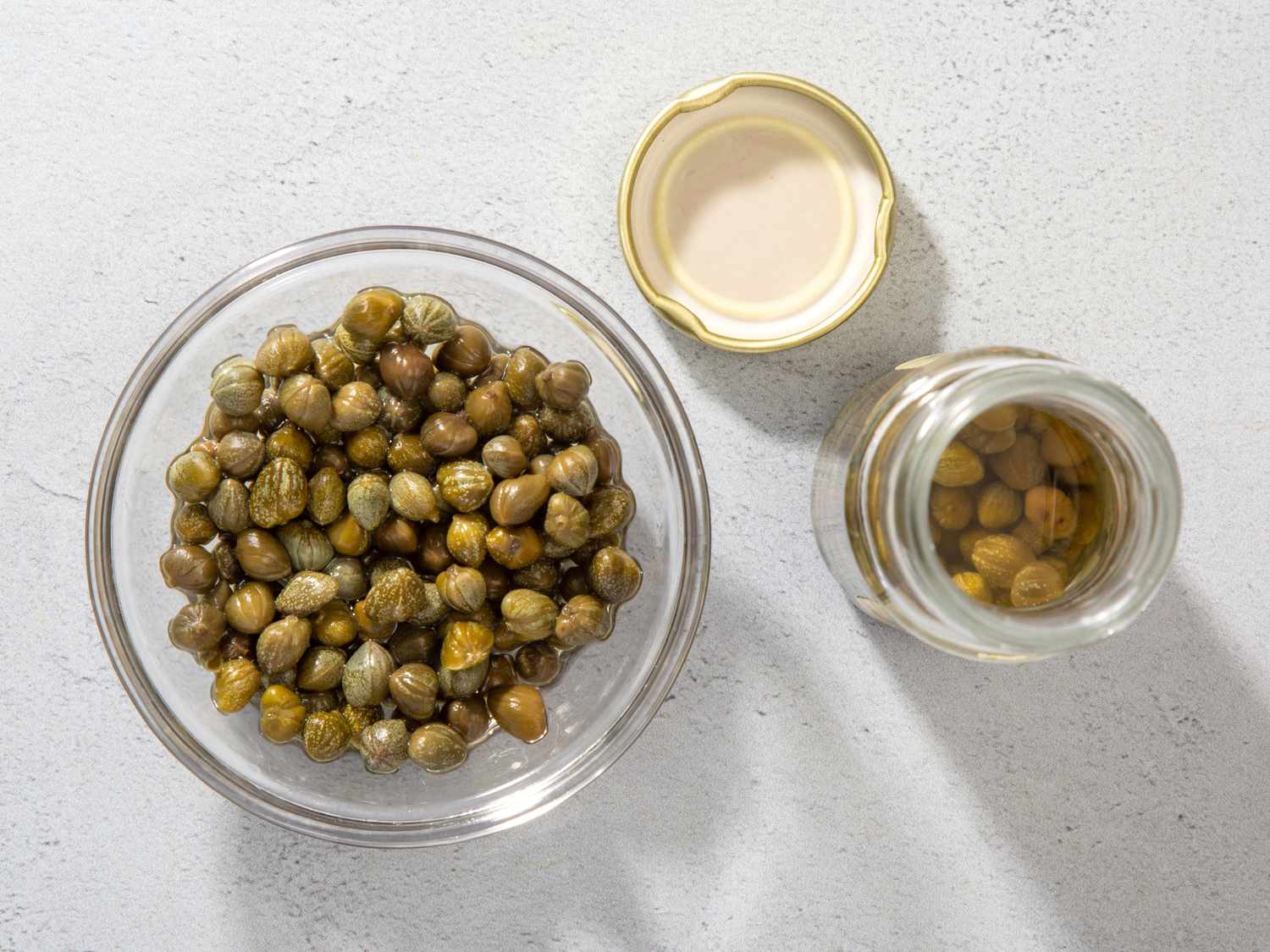

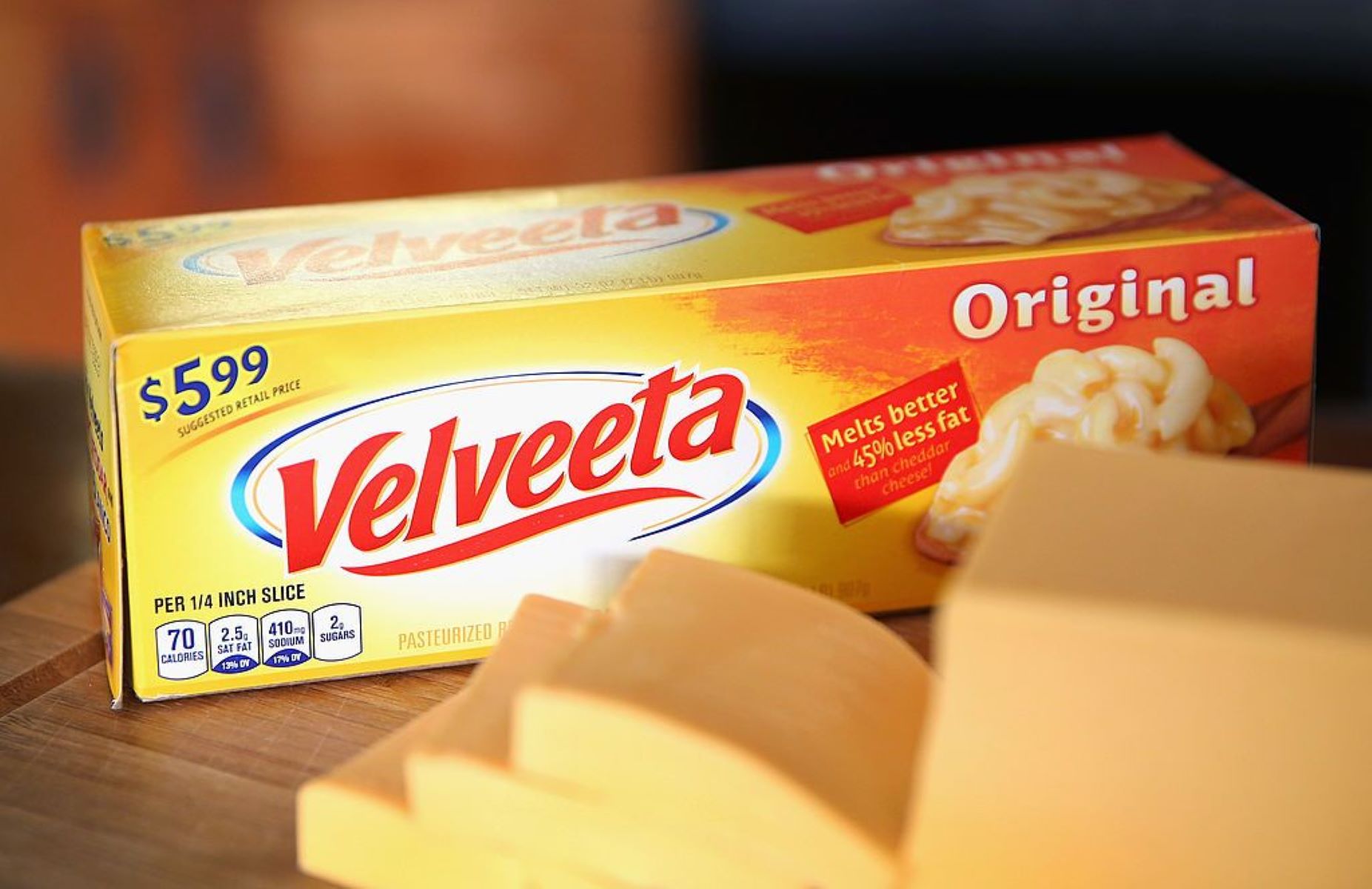
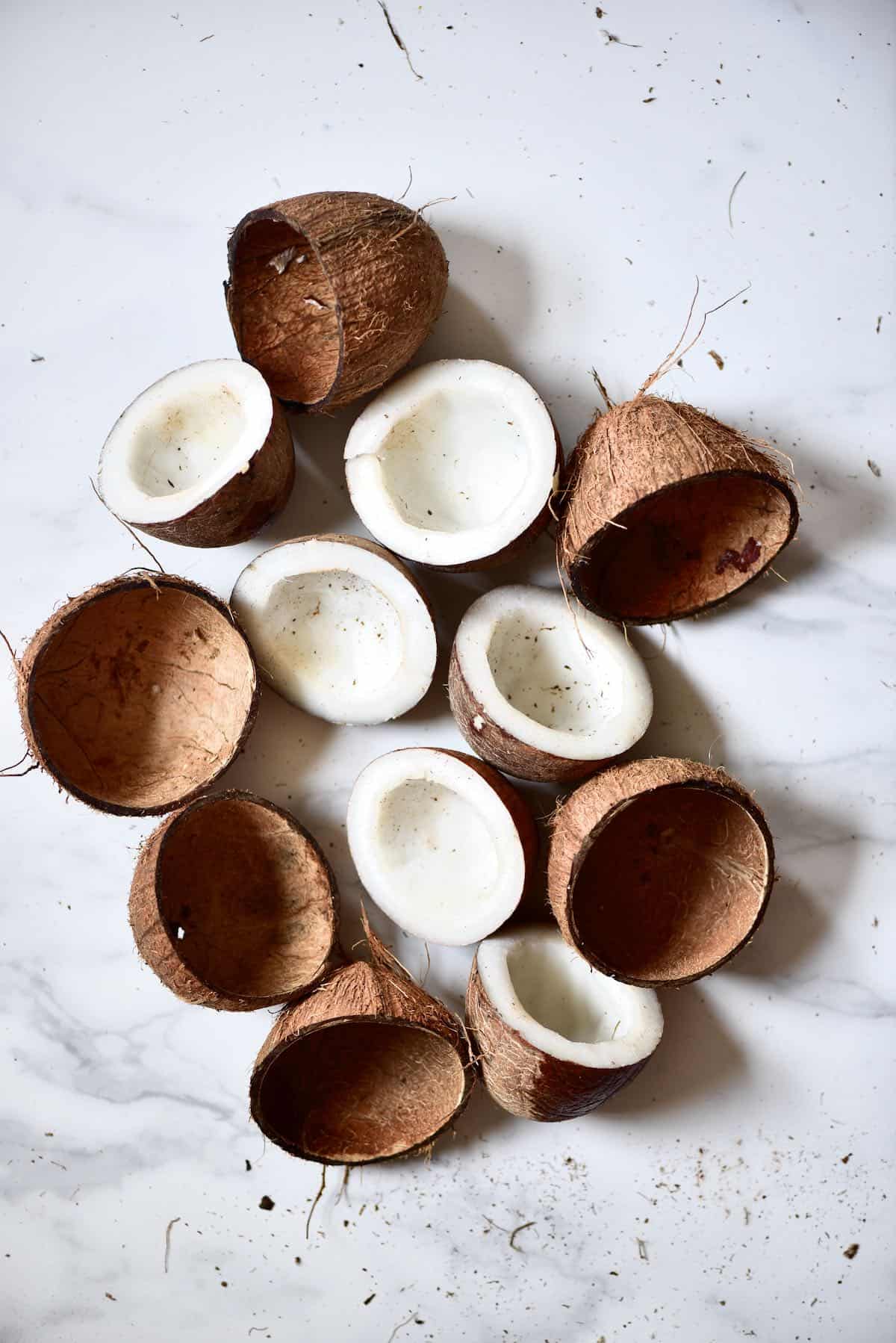

0 thoughts on “How To Store Coffee Grounds After Opening”